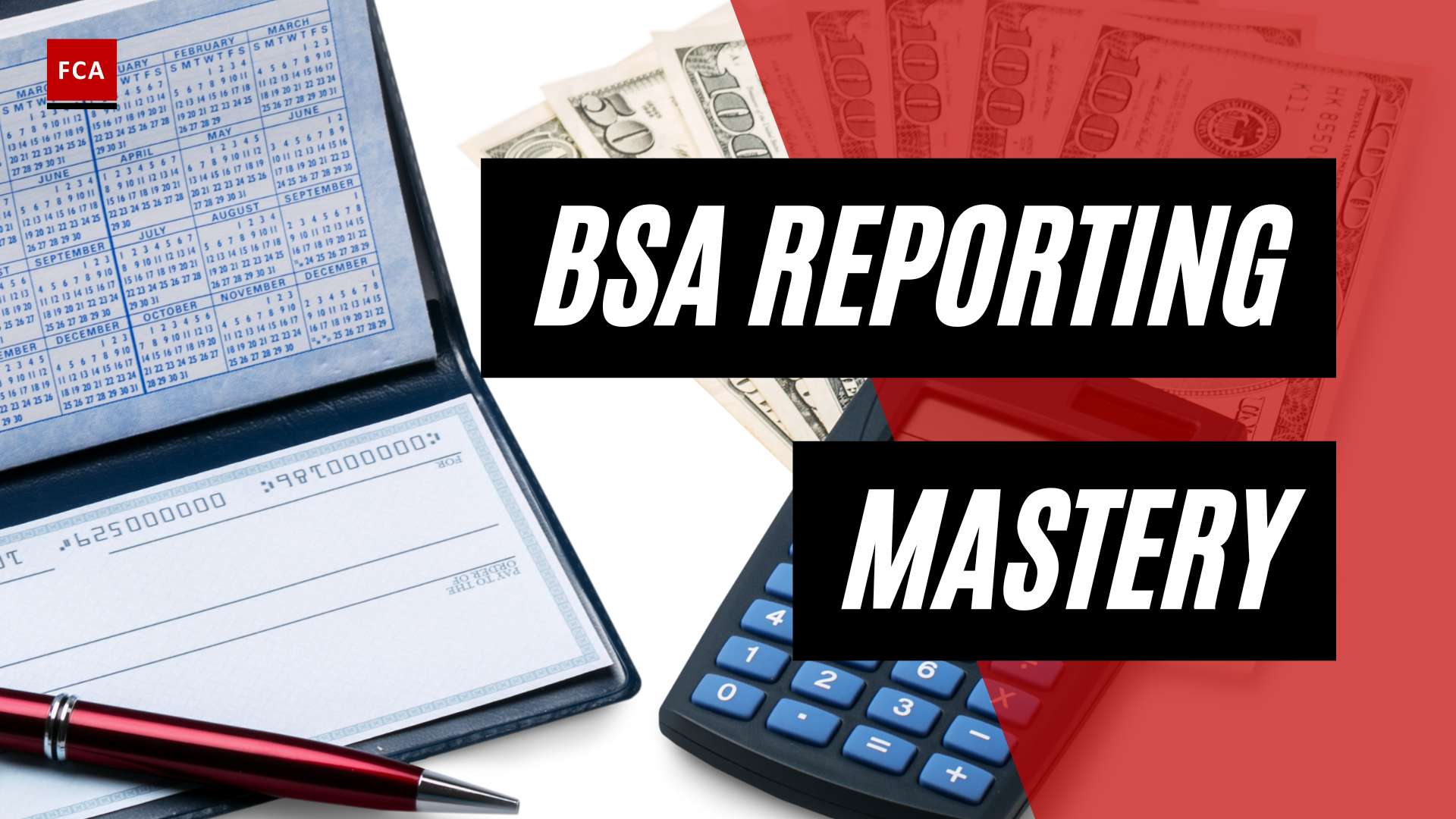Understanding AML Training
In today’s complex and ever-evolving financial landscape, having a comprehensive understanding of Anti-Money Laundering (AML) practices is crucial. AML training equips professionals with the necessary knowledge and skills to detect and prevent money laundering activities within various industries. This section will explore the importance of AML training and identify the individuals who would benefit from pursuing such training.
Importance of AML Training
AML training plays a vital role in safeguarding the integrity of financial systems and protecting organizations from potential risks associated with money laundering. By providing professionals with a solid foundation in AML principles, regulations, and best practices, training programs empower them to identify suspicious activities and report them appropriately.
The consequences of failing to comply with AML regulations can be severe, including substantial financial penalties and damage to an organization’s reputation. AML training helps professionals understand their legal and ethical obligations, ensuring compliance with local and international AML regulations. It also promotes a culture of vigilance within organizations, encouraging employees to actively participate in the fight against financial crimes.
Who Should Pursue AML Training?
AML training is beneficial to a wide range of professionals working in different roles and industries. Individuals who would benefit from pursuing AML training include:
- Compliance Officers: Professionals responsible for ensuring that organizations adhere to AML regulations and maintain effective compliance programs.
- Risk Management Professionals: Those involved in assessing and mitigating risks associated with money laundering and other financial crimes.
- Anti-Money Laundering Specialists: Experts dedicated to detecting and preventing money laundering activities within organizations.
- Financial Services Professionals: Individuals working in the banking, insurance, and investment sectors, where the risk of money laundering is high.
- Legal and Regulatory Professionals: Those involved in shaping and enforcing AML regulations and policies.
- Law Enforcement Officials: Professionals responsible for investigating and prosecuting money laundering cases.
While the above list highlights some of the key roles, AML training is not limited to these individuals. Many organizations across various industries, including healthcare, real estate, and gaming, also benefit from having employees who are well-versed in AML practices.
Pursuing AML training provides professionals with the knowledge and skills necessary to contribute effectively to their organizations’ AML efforts. It also enhances career prospects, as employers increasingly seek individuals with AML certifications and training. In fact, professionals who hold AML certifications have reported significant increases in salary, with some seeing a rise of over 20% (New Age Learning). The demand for certified AML specialists is expected to continue growing, with an estimated 25% increase in job opportunities projected in the near future (New Age Learning).
By pursuing AML training, professionals can enhance their knowledge, skills, and career prospects, while contributing to the efforts against money laundering and other financial crimes.
AML Training Certification Programs
To enhance your expertise in anti-money laundering (AML) and financial crime detection, various certification programs are available. These programs provide comprehensive training and knowledge in AML fundamentals, regulatory compliance, and risk management. Let’s explore three popular AML training certification programs:
FCA AML Foundations Certificate
The FCA AML Foundations certificate is a self-paced online training program designed for professionals new to AML and financial crime detection. Participants gain a comprehensive understanding of customer due diligence, sanctions, risk management, and other essential aspects of AML. The certificate program is ideal for individuals seeking to kickstart their career in AML, compliance, risk management, or related fields.
To learn more about the FCA AML Foundations certificate program, visit the FCA website
Benefits of AML Training
AML (Anti-Money Laundering) training offers numerous benefits for professionals working in compliance, risk management, anti-money laundering, and anti-financial crime fields. By acquiring the necessary knowledge and certifications, individuals can unlock various advantages in their careers. Let’s explore some of the key benefits of AML training.
Career Advancement Opportunities
Pursuing AML training can open doors to significant career advancement opportunities. In an industry that places a high premium on expertise in financial crime prevention, having specialized knowledge in AML can set professionals apart from their peers. Employers actively seek individuals with AML certifications to strengthen their compliance, audit, and risk management teams (Sanction Scanner). As the demand for certified AML specialists continues to grow, professionals with the right qualifications and certifications have a competitive edge in the job market (New Age Learning).
Increased Salary Potential
Attaining an AML certification can lead to a substantial increase in salary. Professionals with AML certifications often earn higher salaries compared to their non-certified counterparts. According to studies, individuals with a CAMP (Certified Anti-Money Laundering Professional) certification can earn, on average, 20% more than those without the certification (Financial Crime Academy). Pursuing an AML certification can be a smart investment for professionals looking to maximize their earning potential.
Meeting Regulatory Requirements
With the increasing complexity and sophistication of money laundering techniques, regulatory bodies are actively strengthening anti-money laundering laws and regulations. Completing AML training and obtaining relevant certifications ensures that professionals are well-equipped to meet evolving regulatory requirements (Sanction Scanner). Companies operating in high-risk sectors such as banks, financial institutions, and international transport companies must comply with these regulations to prevent financial crimes. AML training helps individuals understand their responsibilities, stay updated with changing regulations, and effectively contribute to their organization’s compliance efforts.
By pursuing AML training, professionals can benefit from enhanced career prospects, increased earning potential, and the ability to meet regulatory requirements. As money laundering techniques continue to evolve, staying up-to-date with AML training ensures that professionals are equipped to identify and prevent money laundering activities, safeguarding their organizations and the financial system as a whole.
Key Components of AML Training
To effectively combat money laundering and protect businesses from financial crimes, AML training covers key components that provide individuals with the necessary knowledge and skills. These components include AML fundamentals and principles, customer due diligence (CDD), and sanctions and risk management.
AML Fundamentals and Principles
AML training begins with a focus on the fundamentals and principles of anti-money laundering. This component provides individuals with a comprehensive understanding of the concepts, regulations, and best practices associated with money laundering prevention. It covers topics such as:
- The history and evolution of anti-money laundering efforts
- Recognizing the risks and consequences of money laundering
- Understanding the legal and regulatory framework surrounding AML
- Identifying common money laundering techniques and typologies
- Implementing internal controls and policies to prevent money laundering
- Reporting suspicious activities and complying with regulatory requirements
By grasping the fundamentals and principles of AML, professionals are better equipped to detect and prevent money laundering activities within their organizations.
Customer Due Diligence (CDD)
Customer due diligence is a critical aspect of AML training, focusing on the process of verifying the identity of customers and assessing the risks associated with their transactions. This component provides individuals with the knowledge and techniques required to conduct thorough due diligence, including:
- Collecting and verifying customer identification information
- Assessing customer risk profiles based on factors such as geographic location, occupation, and transaction history
- Conducting enhanced due diligence for high-risk customers
- Monitoring and reviewing customer activity for suspicious behavior
- Understanding the importance of ongoing customer due diligence and updating customer records
Effective CDD practices enable businesses to identify and mitigate potential money laundering risks, ensuring compliance with regulatory obligations and safeguarding against financial crimes.
Sanctions and Risk Management
The component of sanctions and risk management within AML training focuses on understanding and mitigating the risks associated with sanctions violations. It covers:
- Identifying and adhering to international sanctions regimes and regulatory requirements
- Implementing effective sanctions screening processes to detect and prevent transactions involving sanctioned individuals, entities, or countries
- Understanding the implications of sanctions violations and the potential legal and reputational consequences
- Developing risk management strategies to mitigate sanctions-related risks
- Keeping abreast of evolving sanctions lists, regulations, and industry best practices
By incorporating sanctions and risk management into AML training, professionals gain the knowledge and skills necessary to navigate the complex landscape of financial sanctions and ensure compliance with regulatory obligations.
By covering these key components, AML training equips professionals working in compliance, risk management, anti-money laundering, and anti-financial crime roles with the necessary expertise to effectively combat money laundering, adhere to regulatory requirements, and protect businesses from financial crimes.
The Value of AML Certifications
Obtaining a certification in Anti-Money Laundering (AML) brings numerous benefits to professionals working in compliance, risk management, anti-money laundering, and anti-financial crime. AML certifications not only enhance knowledge and skills but also provide global recognition and open doors to various opportunities in the field.
FCA Certificate
Upon earning the CAMP certification, professionals receive a digital badge and certificate from the Financial Crime Academy (FCA). These credentials provide tangible proof of their achievement and can be displayed on professional platforms, such as LinkedIn, to showcase their expertise and dedication to the AML field. The certificate serve as symbol of their commitment to ongoing professional development and adherence to the highest standards of AML knowledge and practice.
AML Training for Industry Professionals
When it comes to combating money laundering and ensuring compliance with anti-money laundering (AML) regulations, industry professionals across various sectors play a vital role. AML training provides these professionals with the necessary knowledge and skills to effectively identify and prevent money laundering activities. Let’s explore the importance of AML training for professionals working in banks and financial institutions, compliance, audit, and risk management teams, as well as those in high-risk sectors.
Banks and Financial Institutions
Professionals working in banks and financial institutions are on the front lines of the fight against money laundering. These institutions are often targeted by money launderers due to the large amounts of funds flowing through their systems. AML training equips employees with the expertise to recognize suspicious transactions, implement proper due diligence procedures, and report any potential money laundering activities.
By receiving comprehensive AML training, professionals in banks and financial institutions can contribute to maintaining the integrity of the financial system, protecting their institutions from regulatory penalties, and safeguarding customers’ assets.
Compliance, Audit, and Risk Management Teams
Compliance, audit, and risk management teams within organizations play a crucial role in ensuring adherence to AML regulations and policies. These teams are responsible for developing and implementing effective AML strategies, conducting internal reviews, and identifying potential vulnerabilities within the organization’s systems.
AML training for compliance, audit, and risk management teams provides a deep understanding of AML fundamentals and principles, customer due diligence (CDD) procedures, and risk management strategies. This knowledge enables these professionals to proactively detect and mitigate money laundering risks, ensuring the organization’s compliance with regulatory requirements.
High-Risk Sectors
Certain industries are considered high-risk when it comes to money laundering, such as financial services, real estate, gaming, and precious metals. Professionals working in these sectors need specialized AML training to effectively combat the unique challenges they face.
By undergoing industry-specific AML training, professionals in high-risk sectors gain a comprehensive understanding of the specific money laundering risks associated with their industry. This includes recognizing red flags, implementing effective compliance measures, and reporting suspicious activities. AML training in high-risk sectors is essential for safeguarding the integrity of these industries and protecting them from reputational and financial harm.
To ensure compliance with evolving regulations and emerging money laundering techniques, professionals in banks, financial institutions, compliance, audit, risk management teams, and high-risk sectors must stay up to date with the latest AML training programs and requirements. By investing in continuous education and training, these professionals empower themselves to effectively combat money laundering and contribute to a safer financial environment.
Staying Ahead with Updated AML Training
To effectively combat money laundering and stay compliant with evolving regulations, professionals in the field of anti-money laundering (AML) must continuously update their knowledge and skills. AML training plays a crucial role in equipping individuals with the necessary tools to address the challenges posed by money laundering activities. In this section, we will explore three key aspects of staying ahead with updated AML training: addressing evolving money laundering techniques, compliance with changing regulations, and identifying and preventing money laundering activities.
Addressing Evolving Money Laundering Techniques
Money laundering techniques are continually evolving, driven by advancements in technology and sophisticated criminal tactics. As highlighted by the Financial Action Task Force (FATF), new technologies such as virtual currencies and online platforms have introduced complexities in detecting and preventing money laundering (Sanction Scanner). To effectively address these evolving techniques, AML professionals must stay up to date with the latest trends and learn how to adapt their strategies accordingly.
AML training programs provide professionals with insights into emerging money laundering methods, case studies, and real-life examples. By understanding the techniques employed by money launderers, individuals can enhance their ability to detect suspicious activities and implement appropriate preventive measures. Through continuous learning and staying informed about the latest industry trends, AML professionals can effectively combat evolving money laundering techniques.
Compliance with Changing Regulations
Regulations governing anti-money laundering undergo frequent updates to keep pace with emerging risks and global developments. AML professionals must remain compliant with these changing regulations to ensure the effectiveness of their efforts. Failure to comply can lead to severe penalties and reputational damage for both individuals and organizations.
AML training programs provide comprehensive knowledge of the latest regulations and legal requirements. By participating in these programs, professionals can enhance their understanding of the regulatory landscape and learn how to implement effective compliance measures. This includes learning about reporting obligations, conducting risk assessments, and implementing robust internal controls. Staying updated with regulatory changes through AML training ensures that professionals can adapt their practices and maintain compliance.
Identifying and Preventing Money Laundering Activities
The primary goal of AML training is to equip professionals with the skills and knowledge to effectively identify and prevent money laundering activities. AML training programs cover essential topics such as AML fundamentals and principles, customer due diligence (CDD), and sanctions and risk management. These components provide professionals with a comprehensive understanding of the strategies and techniques used by money launderers.
By enhancing their knowledge of money laundering indicators and red flags, AML professionals can proactively identify suspicious activities. This includes recognizing unusual transaction patterns, understanding the typologies of money laundering, and conducting thorough investigations. AML training programs also emphasize the importance of effective communication and collaboration within compliance teams and with relevant authorities.
Through continuous AML training, professionals can develop the necessary skills to prevent money laundering activities effectively. By identifying and reporting suspicious transactions, they contribute to maintaining the integrity of the financial system and protecting their organizations from financial crimes.
By staying ahead with updated AML training, professionals in compliance, risk management, and anti-money laundering positions can enhance their effectiveness in combating money laundering activities. Addressing evolving money laundering techniques, complying with changing regulations, and effectively identifying and preventing money laundering activities are essential components of AML training programs. By investing in continuous learning and staying informed about industry developments, professionals can safeguard against financial crimes and contribute to a safer and more secure financial environment.








